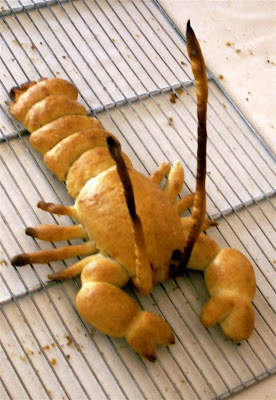
A few months ago the Brigitte Bardot Foundation, one of France’s few animal rights groups, mounted an ad campaign in Métro stops with the tag line, “Le cheval: Ça ne se mange pas!” The ads showed two pictures side by side, the first of a towheaded child hugging a Mr. Ed look-alike, the second of a bloody, questionable-looking raw steak wrapped in cellophane. “How do you like horses?” the ad asked, providing potential answers with checkboxes under each photo: “as a friend” and “as a roast.” The advertisers had taken the liberty of putting a fat red check mark under the first option—but almost every single one of the ads that I ever saw had been amended by vandals, who had checked the box under the steak.
All right, so the ad was a ridiculously easy target. Even so, I think this case in point demonstrates a few things about the French at large.
First, no one here particularly wants to take advice from the Muslim-hating Bardot, and rightly so.
Second, Parisians will never resist the opportunity to graffiti an advertisement—but, then again, they’ll graffiti any reasonably flat surface they can get their hands on. (I particularly enjoyed the desecrators’ latest operation, in which they scribbled the walls of Métro stations with promises to reenact May 1968 for President Sarkozy, but I was a little disappointed by their failure to follow through.)
Third, the French don’t like to be told what to eat, and they don’t care if the animal that they’re eating is beautiful or dignified or lovable.
I find this attitude refreshing. Americans are usually offended (or at least seriously skeeved) by the thought of eating horse meat. But why, exactly, is eating horses so much worse than eating any other kind of animal?
Yes, horses are intelligent and majestic. Yes, horses have been a very important source of transportation for a good part of Western history. Yes, horses are pretty, and many girls (and a few boys) grow up playing with pink plastic pony dolls and glittery horse stickers. But how does any of this make horses less deserving of being slaughtered for consumption than cows, or pigs, or octopi? It’s perfectly respectable to like horses and not to want to eat them—but it’s also perfectly hypocritical to believe that there’s something more wrong about killing horses than about killing other animals, just because we like horses better.
And it's a little baffling that an animal rights association, which presumably aims to improve the lot of all living creatures, would participate in the kind of posturing that turns the morality of eating meat into a bestial popularity contest.
But, based on their reaction to the Bardot campaign, the French aren't buying it. Either they don’t like horses (which wouldn’t be surprising, as they don’t like most things), or they approach their meat with an unsentimental moral consistency fairly unheard of in Anglophone lands.
I still haven’t eaten a horse steak, but yesterday I had my first bite of horse collagen, in the form of a sour bubblegum-flavored gelatin candy. It tasted the way I imagine borax might taste. If it’s a choice between a horse “as a friend” and “as a processed gobbet of corn syrup and food additives,” I think I’ll take the former.





